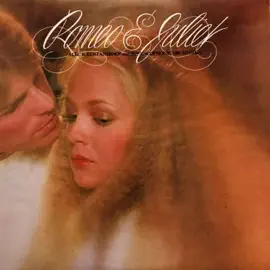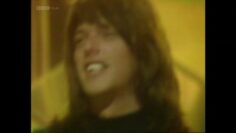Romeo and Juliet (Acts I & II) – Alec R. Costandinos (1978)
Romeo & Juliet – Studio album by Alec R. Costandinos and the Syncophonic Orchestra
Released September 10, 1978
Label Ibis, Casablanca
Songwriter Alec R. Costandinos
Producer Alec R. Costandinos
Romeo & Juliet is the first studio album by the disco musician Alec R. Costandinos and the Syncophonic Orchestra released in 1978. It was recorded at Trident Studios, London, in September 1977 and released by Ibis in France and Casablanca Records in the US.
The album consists of one over 30-minutes long disco suite composed of five acts, including various instruments and genres. It included famous collaborators such as Don Ray, Herbie Flowers, Peter Van Hooke, Alan Hawkshaw, Chris Karan, Frank Ricotti and the photographer Ron Slenzak. One fragment was released as a “Romeo and Juliet” single and reached the top of US Hot Dance Club Play chart in March 1978.
Long regarded as Euro-disco producer Alec R. Costandinos’ conceptual masterpiece, Romeo & Juliet essentially took the epic disco sounds of his dancefloor-friendly Love & Kisses group and instilled a high-brow sense of appeal — and it worked, well. This effort secured Costandinos’ status as the man who would be offered the opportunity to craft the theme song to Casablanca’s soon-to-follow Thank God It’s Friday film. A true landmark, Romeo & Juliet showed that disco could be just as literate as it was hedonistic.
Arrangement – Don Ray
Art direction, design – Gribbitt!, Henry Vizcarra, Phyllis Chotin
Bass – Herbie Flowers
Brass – John Watson’s Brass Section
Drums – Peter Van Hooke
Engineering – Peter R. Kelsey
Guitar – Chris Rae, Rick Hitchcock, Slim Pezin
Keyboards – Alan Hawkshaw, Alec R. Costandinos, Raymond Donnez
Percussion – Chris Karan, Frank Ricotti, John Dean
Performer – The Birds Of Paris
Photography – Ron Slenzak
Producing, composing – Alec R. Costandinos
Programming of synthesizers – George Rodi
Strings – The Pat Halling String Ensemble
Tape Operator – Collin Green, Peter Kamlish, Reno Ruocco
Technician – Stephen Short




